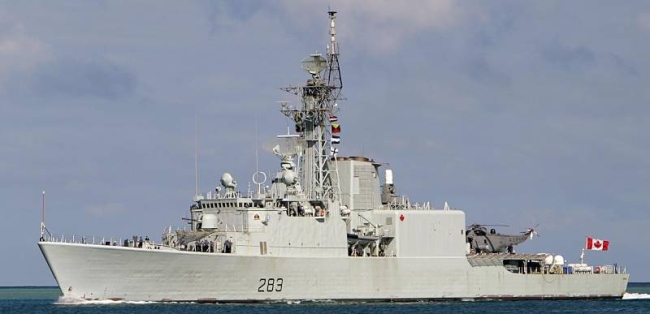WASHINGTON, Aug. 23, 2010 — Any talk of coalition forces being unable to succeed in Afghanistan is premature, given that they are just beginning to get all the troops and equipment that President Barack Obama’s strategy there calls for, Vice President Joe Biden said today.
Army Gen. David H. Petraeus, commander of U.S. and international forces in Afghanistan, “now and only now has all the resources that the strategy calls for,” Biden said during a speech at the Veterans of Foreign Wars national convention in Indianapolis.
The arrival this month of the last of 30,000 additional troops, as well as other additional resources combined with Petraeus’ leadership, puts the coalition’s nine-year war in Afghanistan in its best position yet to stamp out radical extremism that led to the Sept. 11, 2001, attacks against the United States, the vice president said.
Afghanistan “is the most intractable problem we face, and we needed the best general we have, and now we have him,” Biden said. “So folks, don’t buy into [the idea] that we’ve failed in Afghanistan, because we now are only beginning with the right general and the right number of forces to accomplish our objectives.”
Biden noted that the drawdown of U.S. forces in Iraq to 50,000 troops at the end of this month will allow for a greater focus on Afghanistan. “After too many years of neglect,” he said, “we now are making overall progress to disrupt and defeat the al-Qaida safe haven and reverse the Taliban momentum.”
That progress will allow for governance that prompts the will of the Afghan people to reject extremism, Biden said.
“We cannot want peace and security in Afghanistan more than they want it,” he said.
The vice president also said it was important for the administration to name July 2011 as the start of the United States’ transition out of Afghanistan. However, “we are not leaving in July 2001; it’s the start of the transition” that will be decided by conditions on the ground on a province-by-province basis, he said.
“The date is important to tell the Afghans that they must step up; they must exercise sovereignty if they are ever going to prevail,” he added.
On Iraq, Biden said he is “absolutely confident that Iraq will form a national government that is able to sustain that country.”
Despite the Iranian government spending $100 million to influence Iraq’s national elections, Biden said, Iran’s influence in Iraq “is minimal,” as evidenced by the fact that none of the candidates it backed won in two elections held since March.
Because of the work of U.S. military members under the direction of Army Gen. Raymond T. Odierno, the vice president said, Iraq today is a nearly unrecognizable from the height of violence there in 2007. With the improved security, U.S. forces were able to train 650,000 Iraqi security forces, which now can protect the country, he said.
The security also has led to free elections and government leaders who resolve disputes through negotiations rather than violence, Biden said. The issue of who will lead the national government since no single candidate or party earned a clear victory is being worked out under parliamentary procedures, and will reflect the will of voters, he added.
“In establishing a democracy, the most important election is not the first election,” said Biden, who has made 13 trips to Iraq to help with the transition process. “It’s the second election.
“Politics is not always pretty,” he continued, “but the hard work of forming a new government is well under way, and I personally have made it clear to the leading politicians that it’s time for them to match the courage of their citizens by completing the process.”
The drawdown to 50,000 U.S. troops, which is expected to be completed next week, “does not mean we are disengaging from Iraq,” Biden said. Rather, the United States will have a long-term relationship with Iraq, as reflected by U.S. consulates opening in Iraqi cities, he said.
Nine years of war in Afghanistan and Iraq has produced more than 2 million new war veterans, nearly 40,000 of whom are wounded, Biden said. Of those, some 18,000 will require critical care, at an estimated cost of $7 billion, for the rest of their lives, he noted. Biden pledged that the country would meet their needs, no matter the cost.
“Our nation has only one truly sacred obligation,” he said, “and that is to prepare and equip those who we send into harm’s way and to care for them and their families when they come home.”
Already, Biden said, the Obama administration “is involved in the most comprehensive program ever” to provide for veterans, giving the Veterans Affairs Department a $16 billion budget increase this year and seeking $11 billion next year.
“Whether or not we keep our promise to our veterans will say more about who we are as a nation than anything else we do,” he said. “Our service to our veterans is non-negotiable.”
Source:
U.S. Department of Defense
Office of the Assistant Secretary of Defense (Public Affairs)

 von
von 
